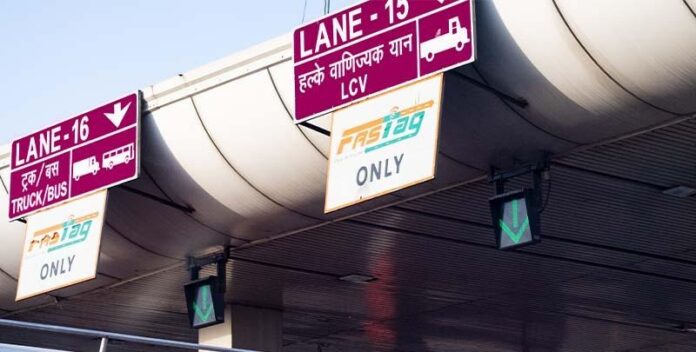In recent years, India has witnessed a transformative change in the way toll payments are made on national highways. This evolution has been significantly influenced by the introduction of FASTag, a technology-driven initiative designed to streamline toll collection and improve the driving experience for vehicle owners. This article delves into what FASTag is and how it simplifies toll payments, while also highlighting the numerous benefits associated with its use.
What is FASTag?
FASTag is an electronic toll collection system introduced by the National Highway Authority of India (NHAI) to ensure seamless movement of vehicles across toll plazas. What is FASTag? Essentially, a FASTag is a reloadable tag that employs Radio Frequency Identification (RFID) technology to make toll payments directly from the prepaid or savings account linked to it. Affixed to the vehicle’s windscreen, this tag enables automatic deduction of toll charges, thereby facilitating a non-stop journey through toll plazas without the need for cash transactions.
From its inception, the primary goal of FASTag was to mitigate traffic congestion and reduce waiting times at toll gates. The Ministry of Road Transport and Highways (MoRTH) mandated the use of FASTags in December 2019, marking a significant step towards a cashless economy and digital transformation in the transport sector.
How FASTag Simplifies Toll Payments
1. Reduced Waiting Times
One of the most significant impacts of FASTag is the reduction of waiting times at toll booths. Traditional cash payments often led to long queues, especially during peak travel times, resulting in delayed journeys and wastage of fuel. With FASTag, the toll payment process becomes seamless, allowing vehicles to pass through toll plazas efficiently without stopping.
2. Convenience for Drivers
FASTag eliminates the need for carrying cash, ensuring greater convenience for drivers. Not only does this streamline the process, but it also minimizes the risks associated with cash handling. Drivers can top up their FASTag account online, ensuring they have sufficient balance before embarking on a journey.
3. Enhanced Transparency and Accountability
With FASTag, every transaction is recorded digitally, promoting transparency and accountability in toll collections. Vehicle owners receive instant notifications regarding toll charges and account balance updates, which further helps in maintaining a clear record of expenditure related to toll payments.
4. Environmental Benefits
By facilitating faster toll transactions, FASTag contributes to reduced idling time at toll plazas, thereby decreasing vehicle emissions and fuel consumption. This initiative helps improve air quality and supports India’s environmental sustainability goals by minimizing the carbon footprint resulting from vehicular movement.
5. Interoperability Across India
A significant advantage of FASTag is its interoperability across all toll plazas situated on national highways in India. Regardless of the state or region, FASTag simplifies toll payments with a single tag, making it highly efficient for long-distance travelers covering multiple states.
FASTag Benefits
FASTag benefits extend beyond merely facilitating toll transactions. Here are several notable advantages:
Ease of Recharge
Recharging a FASTag is hassle-free, with multiple options available such as UPI, credit/debit cards, net banking, and mobile wallets. This flexibility ensures that users can maintain their balance effortlessly.
Cashback Offers and Discounts
To encourage the adoption of FASTag, various banks and institutions frequently offer cashback schemes and discounts on toll payments. Such incentives make it appealing for users to switch to this digital mode of payment.
Integration with Mobile Banking
Many banks have integrated FASTag services within their mobile banking apps. This integration allows customers to manage their FASTag account, monitor transactions, and receive alerts regarding low balance situations, all from one platform.
Security Features
With each transaction being linked to the registered vehicle, the chances of fraud or unauthorized usage are greatly reduced. Additionally, since the money is deducted directly from linked accounts, it is more secure than carrying cash.
Part of a Larger Digital Framework
FASTag aligns with the Indian government’s push towards a digital economy and the “Digital India” initiative. Its implementation is paving the way for further advancements in smart transportation and infrastructure development.
Challenges and the Road Ahead
While FASTag has revolutionized toll payments, it is not without challenges. Issues like technical glitches, incorrect deductions, and unsuccessful tag readings occasionally arise, potentially causing inconvenience to users. Moreover, ensuring widespread acceptance and efficient management of FASTag services across remote and rural locations remains an ongoing objective.
To address these challenges, continuous enhancements in infrastructure, improved customer service, and raising awareness among vehicle owners about the usage and benefits of FASTag are vital. Furthermore, advancements in RFID technology and integration with emerging technologies like GPS and digital identity systems can help streamline operations and resolve current limitations.
Conclusion
FASTag has undoubtedly transformed toll payment systems in India. It has brought about increased efficiency, enhanced convenience, and robust financial transparency. The initiative aligns with India’s broader vision of attaining modernized and digital-friendly roads, reducing vehicular congestion, and fostering environmental sustainability. As adoption rates continue to rise, FASTag is poised to play a crucial role in redefining road travel experiences in India and setting a benchmark for similar technological interventions globally.















